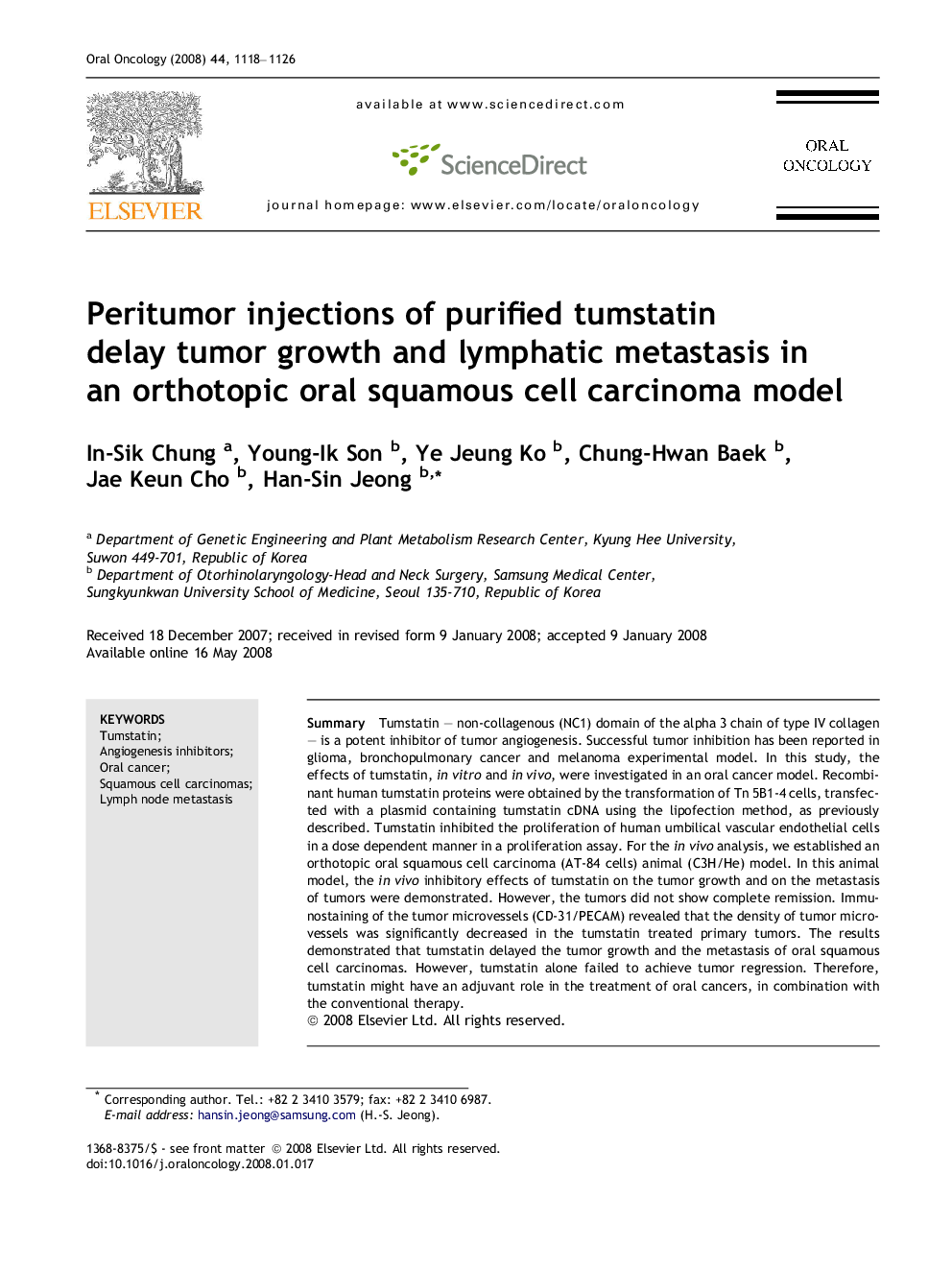| Article ID | Journal | Published Year | Pages | File Type |
|---|---|---|---|---|
| 3165199 | Oral Oncology | 2008 | 9 Pages |
SummaryTumstatin – non-collagenous (NC1) domain of the alpha 3 chain of type IV collagen – is a potent inhibitor of tumor angiogenesis. Successful tumor inhibition has been reported in glioma, bronchopulmonary cancer and melanoma experimental model. In this study, the effects of tumstatin, in vitro and in vivo, were investigated in an oral cancer model. Recombinant human tumstatin proteins were obtained by the transformation of Tn 5B1-4 cells, transfected with a plasmid containing tumstatin cDNA using the lipofection method, as previously described. Tumstatin inhibited the proliferation of human umbilical vascular endothelial cells in a dose dependent manner in a proliferation assay. For the in vivo analysis, we established an orthotopic oral squamous cell carcinoma (AT-84 cells) animal (C3H/He) model. In this animal model, the in vivo inhibitory effects of tumstatin on the tumor growth and on the metastasis of tumors were demonstrated. However, the tumors did not show complete remission. Immunostaining of the tumor microvessels (CD-31/PECAM) revealed that the density of tumor microvessels was significantly decreased in the tumstatin treated primary tumors. The results demonstrated that tumstatin delayed the tumor growth and the metastasis of oral squamous cell carcinomas. However, tumstatin alone failed to achieve tumor regression. Therefore, tumstatin might have an adjuvant role in the treatment of oral cancers, in combination with the conventional therapy.
